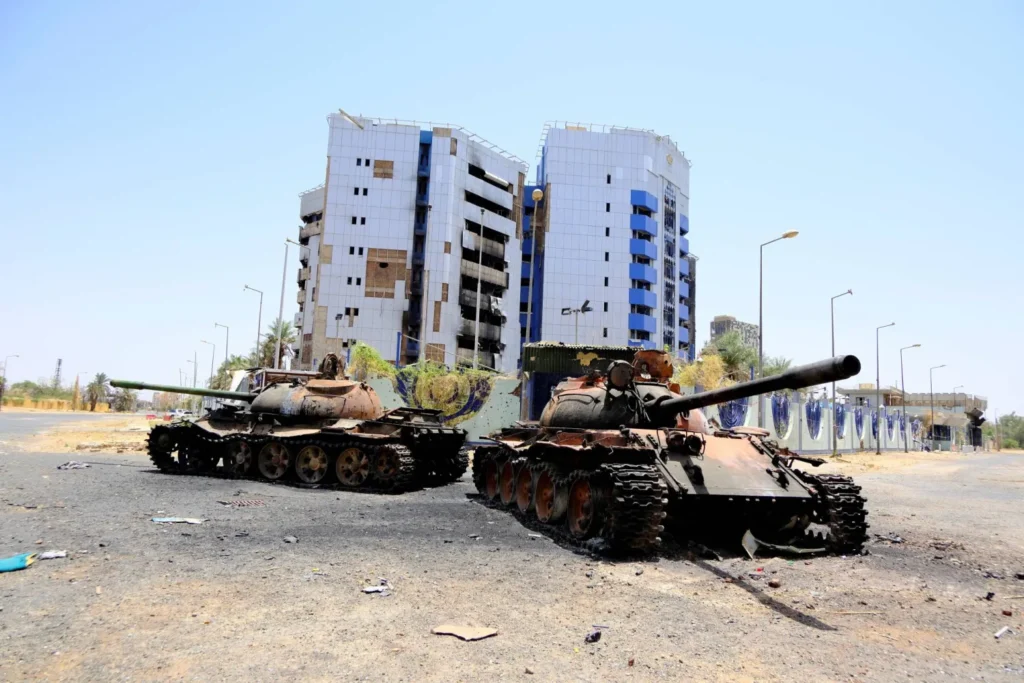SKY YORK Journal — On May 22, 2025, the United States government escalated its response to the ongoing war in Sudan, imposing comprehensive financial and trade sanctions directly on the Sudanese Armed Forces and the Sovereignty Council led by General Abdel Fattah al-Burhan.
The sanctions are built on verified evidence of the army’s deployment of chemical and biological weapons against civilians, deepening global outrage over a war that has already displaced millions and pushed Sudan into its worst humanitarian crisis in decades.
A Sharp Policy Shift
This move represents a calculated change in U.S. strategy. Under the Biden administration, Washington applied measured pressure — limited mostly to travel bans and asset freezes on individual leaders. Now, under President Donald J. Trump, the approach is decisive and structural, targeting the core power apparatus that sustains the war and obstructs peace efforts.
Sources inside Washington confirmed that intelligence briefings directly tied al-Burhan and his senior commanders to systematic war crimes, including the use of prohibited munitions and the cover-up of mass civilian casualties.
Economic and Financial Clampdown
The sanctions include:
-
Frozen credit lines for state-linked financial entities.
-
Strict restrictions on U.S. exports to Sudan.
-
Suspension of U.S. government loans and a sharp reduction in development aid.
-
Constraints on international banking transactions, isolating Sudan from key global financial networks.
Analysts warn that these measures will tighten Sudan’s economic isolation, making foreign financing and recovery virtually impossible without major policy changes.
A Direct Message to al-Burhan
The U.S. administration framed the sanctions as a clear ultimatum to General al-Burhan:
end the war, engage in credible political negotiations, and dismantle the influence of Islamist operatives within the military — or face deeper isolation and potentially a United Nations Chapter VII designation, which would trigger full diplomatic and financial quarantine.
“The window for political dialogue is closing,” a senior State Department official said. “The Sudanese leadership must decide if it wants to rebuild the country or drive it further into collapse.”
A Country at a Breaking Point
Sudan’s economy, already reeling from years of corruption, mismanagement, and conflict, is now on the brink. Analysts note that while the country’s direct ties with the U.S. economy are limited, the symbolism and global reach of these sanctions send a powerful signal to international lenders, investors, and regional partners.
Without reform, experts warn, the Sudanese state risks total economic paralysis and deeper humanitarian disaster.
The Global Pressure Campaign
European and African partners are now moving to align with Washington, signaling a coordinated international strategy to push Sudan’s military leadership into a comprehensive ceasefire and political settlement.
Human rights organizations and legal experts have renewed calls for swift international accountability, emphasizing that the documented use of chemical weapons and mass violence under al-Burhan’s command must be prosecuted at the International Criminal Court (ICC).
